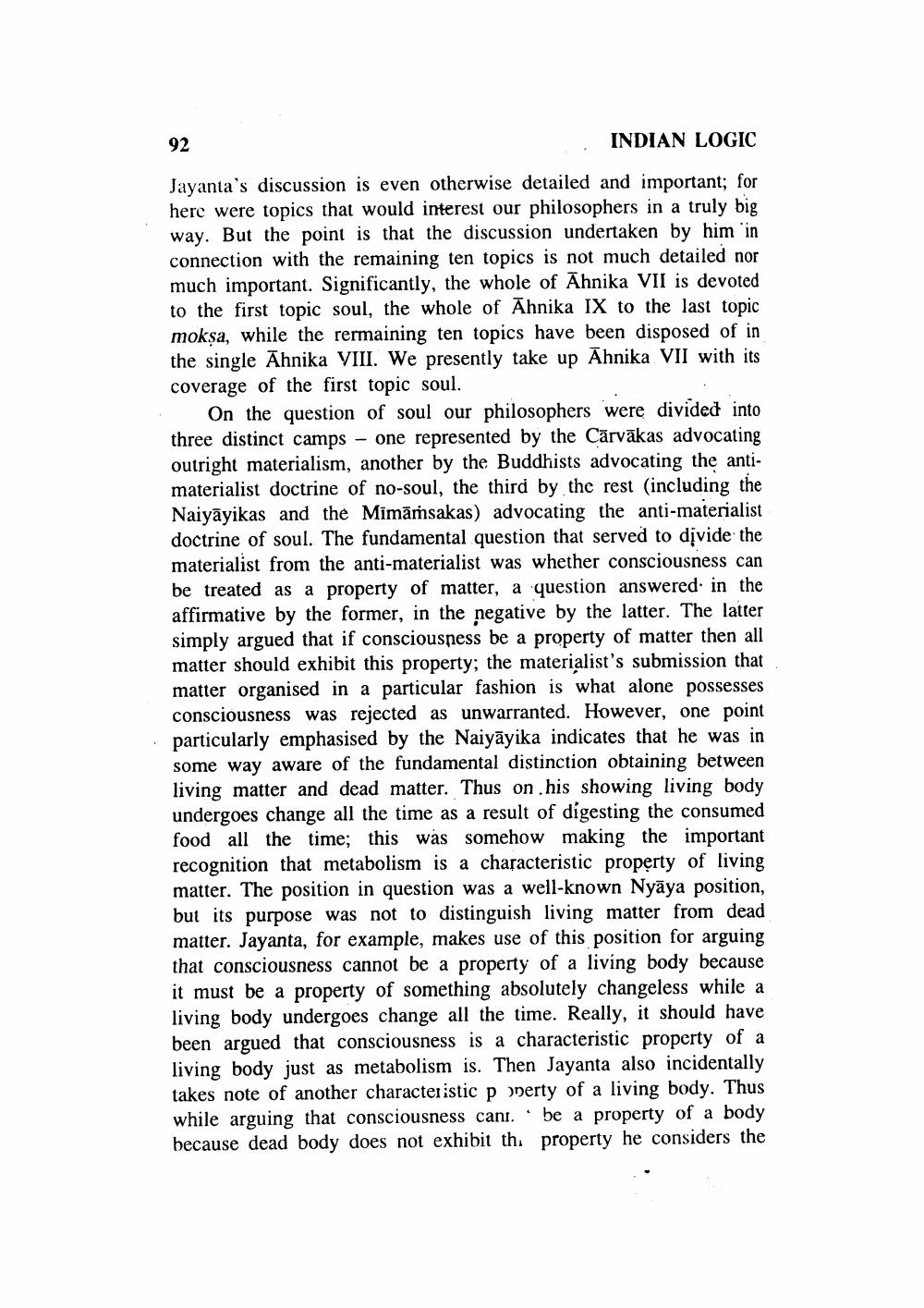________________
92
INDIAN LOGIC
Jayanta's discussion is even otherwise detailed and important; for here were topics that would interest our philosophers in a truly big way. But the point is that the discussion undertaken by him in connection with the remaining ten topics is not much detailed nor much important. Significantly, the whole of Āhnika VII is devoted to the first topic soul, the whole of Āhnika IX to the last topic mokşa, while the rermaining ten topics have been disposed of in the single Āhnika VIII. We presently take up Āhnika VII with its coverage of the first topic soul.
On the question of soul our philosophers were divided into three distinct camps - one represented by the Cārvākas advocating outright materialism, another by the Buddhists advocating the antimaterialist doctrine of no-soul, the third by the rest (including the Naiyāyikas and the Mimāṁsakas) advocating the anti-materialist doctrine of soul. The fundamental question that served to divide the materialist from the anti-materialist was whether consciousness can be treated as a property of matter, a question answered in the affirmative by the former, in the negative by the latter. The latter simply argued that if consciousness be a property of matter then all matter should exhibit this property; the materialist's submission that matter organised in a particular fashion is what alone possesses consciousness was rejected as unwarranted. However, one point particularly emphasised by the Naiyāyika indicates that he was in some way aware of the fundamental distinction obtaining between living matter and dead matter. Thus on his showing living body undergoes change all the time as a result of digesting the consumed food all the time; this was somehow making the important recognition that metabolism is a characteristic property of living matter. The position in question was a well-known Nyāya position, but its purpose was not to distinguish living matter from dead matter. Jayanta, for example, makes use of this position for arguing that consciousness cannot be a property of a living body because it must be a property of something absolutely changeless while a living body undergoes change all the time. Really, it should have been argued that consciousness is a characteristic property of a living body just as metabolism is. Then Jayanta also incidentally takes note of another characteristic p nerty of a living body. Thus while arguing that consciousness canı. be a property of a body because dead body does not exhibit the property he considers the




